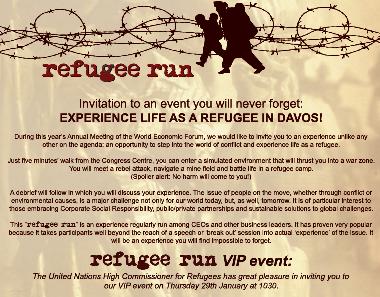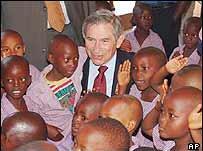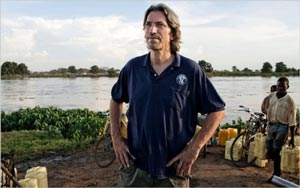Tea and the “narrative of Terror”
Even as [Three Cups of Tea] appears to provide a self-critical and humane perspective on terrorism, [this] article argues that it constructs a misleading narrative of terror in which the realities of Northern Pakistan and Muslim lifeworlds are distorted through simplistic tropes of ignorance, backwardness and extremism, while histories of US geopolitics and violence are erased. The text has further facilitated the emergence of a participatory militarism, whereby humanitarian work helps to reinvent the military as a culturally sensitive and caring institution in order to justify and service the project of empire.
From a 2010 article by Nosheen Ali{{1}}{{2}}, cited by Jon Krakauer in “Three Cups of Deceit.”
I have to admit I cringed when I read Mortenson's description of the Waziri men who he claimed kidnapped and held him for 8 days: “Six Waziri men with bandoliers criss-crossed on their chests slumped on packing crates smoking hashish from a multinecked hookah." The gang's leader is a nearly comic parody of the sinister swarthy villain, wearing "rose-colored aviator glasses" and a "thick black mustache that perched, batlike, on his upper lip."
The men come across as barely human savages as they "attack" their meal of roast lamb "with their long daggers, stripping tender meat from the bone and cramming it into their mouths with the blades of their knives."
One of his barbaric abductors was "a wild man with a matted beard and grey turban...shouting in a language [Mortenson] didn't understand."
What fully completes this disturbing picture is evidence that the kidnapping was fabricated out of an uneventful visit, with Mortenson the honored guest of his alleged abductors, one of whom is in fact a researcher at a Pakistani think tank.
The stereotyped, dehumanizing account of these alleged kidnappers is not an isolated occurrence, either. Ali argues that the whole book recreates the "redemptive narrative of terrorism" advanced by the U.S. Military...while generating a simplistic portrait of Pakistanis that undermines their actual connection with Westerners. (To be fair, the book was mostly written not by Mortenson but rather by the journalist David Relin; "Mortenson" here refers to the dramatized character in Three Cups of Tea.)
Compare this version of the "other" to that present in another aid story, Mountains beyond Mountains: The Quest of Dr. Paul Farmer, A Man Who Would Cure The World. Both books are, as Ali points out, "stories of American humanitarian heroes engaged in international development" only Mountains beyond Mountains, well, isn't so demeaning:
Mountains beyond Mountains embodies a politicised and historicised humanitarianism. It links Haitian poverty and disease directly with structural processes, and details the various ways in which the US military–corporate complex has led to the repression and impoverishment of Haitians. Focusing on the ‘interconnectedness of the rich and the poor’, and on ‘transformation, not education’, Mountains beyond Mountains emphasises the relationality of the American self and Haitian other.
In Three Cups of Tea the relationality of the American self and Pakistani other disappears in a discourse of poverty and ignorance that is largely closed, self-evident and self- affirming—and thus orientalising.
[[1]] Unfortunately a gated link; NYU has a subscription.[[1]] [[2]] UPDATE: Here's the ungated version.[[2]]
 From Aid to Equality
From Aid to Equality








